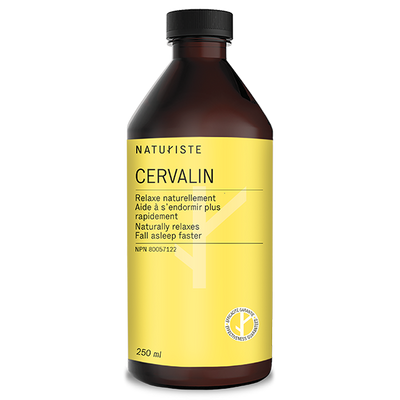FOOD SENSITIVITY VS FOOD ALLERGY
Most people don’t know that intolerance to a certain food is very different from an allergic reaction to it. Both are types of reactions. So, how do we distinguish one from the other?

What’s the difference between each?
Food intolerance is often a digestive problem while food allergies are connected to our immune system reacting to certain food. The most common example to differentiate between food intolerance and food allergies is comparing milk allergy to milk intolerance. If you are intolerant to dairy, you could be lactose intolerant. Although harmless, it can be uncomfortable. Lactose is the sugar in milk. For those who are sensitive to milk, lactose doesn’t break down as easily as it should. Instead, it causes unpleasant digestive reactions such as bloating or diarrhea. If it were an allergy to dairy, it would be an immune-mediated reaction to proteins in cow’s milk. Your immune system reacts to a certain protein and is triggered to respond as though it were dangerous. Registered Dietician, Sharon Jaeger, explains that “symptoms of an allergy and intolerance can appear similar, but one clear difference is how they affect your body.”
What are some of the most common food allergens?
Jaeger further describes a food allergy as “your immune system mistaking a protein or another ingredient within the food as a threat.” Here are some of the most common examples of food that account for allergic reactions.
- Eggs
- Fish
- Milk
- Peanuts
- Tree Nuts
- Shellfish
- Soy
- Wheat
What happens during food intolerance?
As mentioned previously, this type of reaction does not involve the immune system. Frequently beginning in the gastrointestinal system, symptoms can begin half an hour after eating or drinking the food or its components. An intolerance reaction can result in, but not be limited to, stomachache, bloating, or diarrhea. It’s also possible that symptoms may not show up to 48 hours after eating or drinking. Food sensitivity can be caused by a missing enzyme required to digest food. It could also be linked to a chronic condition such as IBS.

What happens during food allergies?
When encountering an allergic reaction to food, our body will fight it as though it is faced with a disease-producing microorganism. First, the immune system will produce antibodies specific to that allergen called Immunoglobin E. The allergen binds to the IgE antibodies which in turn triggers the immune system to respond evermore quickly. Such a response can then be the cause of oral inflammation, respiratory distress, vomiting, a drop in blood pressure, hives, or anaphylaxis for example.
What’s an anaphylactic reaction?
An anaphylactic reaction involves the following symptoms: difficulty talking, difficulty swallowing, difficulty breathing, drop in blood pressure, rapid heartbeat, and unconsciousness. It’s considered the most severe type of allergic reaction because it can be sudden, severe, and life-threatening.
Food allergy induced by exercise, how is that possible?
Turns out, there is a reaction that doesn’t only involve food allergens. An exercise-induced food allergy happens only when you engage in physical activity after eating the food that you’re allergic to. In this scenario, your body temperature increases, you start itching, you become lightheaded, and you experience hives or even anaphylaxis. The main resolution is to not eat that specific food for a few hours before working out.
Is there a way to prevent these reactions?
Not an unusual fact, but it is always important to retrace family medical history whenever you are experiencing a health issue. It goes for allergies too. You are more likely to develop them if your parents also struggle with them. For children, the food allergens that are most problematic are eggs, milk, and peanuts. In adults, peanuts, tree nuts, and shellfish are more common.
Food intolerances and food allergies can be genetic or triggered over time. They can also worsen as we age.

How do you manage food intolerance and food allergies?
The American Academy of Allergy, Asthma, and Immunology advises integrating egg, dairy, peanuts, tree nuts, or seafood gradually into the infant’s diet. Of course, recommendations from your trusted paediatrician take priority.
Here are some of the most basic ways to avoid either type of reaction:
- Avoid food causing reactions or uncomfortable symptoms
- Carry an EpiPen if you are unexpectedly exposed to a food allergy
Naturiste Recommendations
Another great way to prevent and manage food intolerances and allergic reactions is to incorporate the following supplements into your lifestyle.
These probiotics promote good digestive functions, help with immune resistance and create a balance of intestinal flora.
Helps maintain the health of the immune and digestive systems following periods of physical stress.
Turmeric is now a very popular supplement thanks to its beneficial health properties. The active substances present in Turmeric include beneficial bioflavonoids called curcuminoids, which have recognized antioxidant power.
Its daily use promotes good liver health and prevents digestive discomfort that could be linked to biliary disorders. It acts as a filter and feeds off bad toxins.
This comprehensive formula contains betaine plus 9 digestive enzymes to aid the digestive process which tends to be less efficient as we age. Multi-Enzymes has the role of properly breaking down food into simpler, more bioavailable constituents, benefiting a better use for the needs of the body.
In conclusion, that which causes you an allergic reaction must be avoided at all costs. On the other hand, food intolerance can be better controlled with proper substitutions. You may be able to eat smaller amounts of that food to which you are sensitive to. However, since everybody reacts differently to intolerances, it is always safest to consult with your doctor and find out what works best for you!




Leave a comment